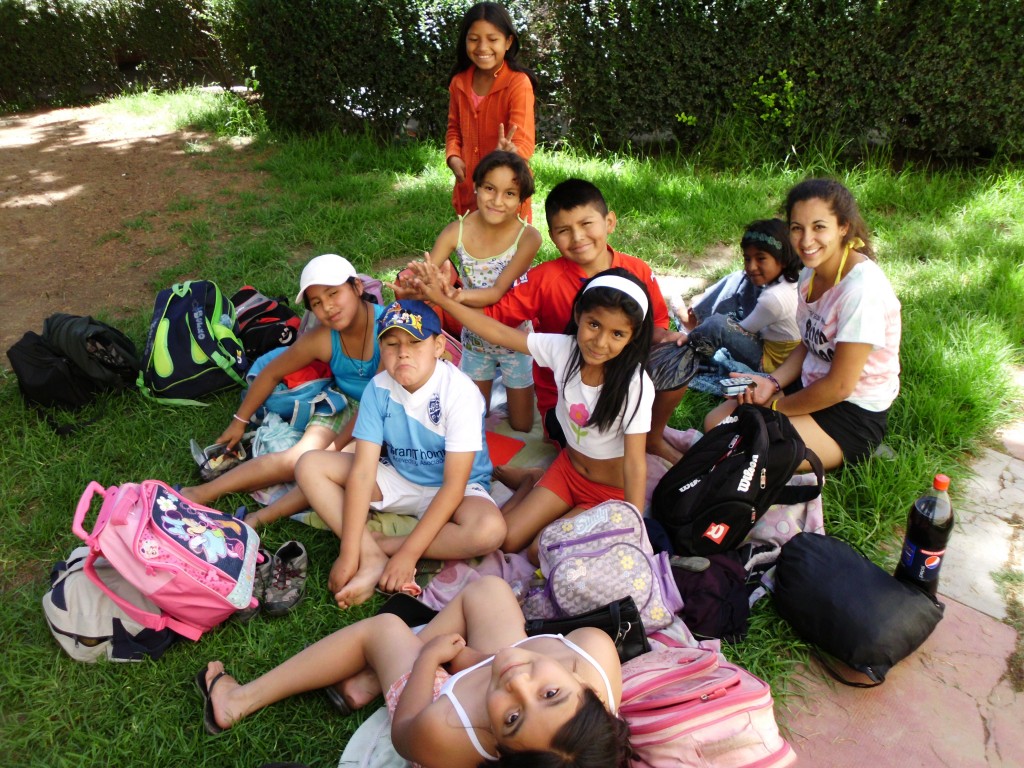Female Fulbright Scholars Overcome Stereotypes of Americans Abroad

Cowboys, moviestars, and money—that’s what America is made of? If opinions regarding weight, IQ, and imperialism were added to the mix, nearly every foreign country’s American stereotype would be complete, according to the experiences of several Fulbright Scholars over the generations. Fulbright Scholars, selected by the U.S. government to receive grants for international educational exchange, are more than simply models of Americanism to the countries they visit. They are traveling diplomats. By venturing across borders in the name of Fulbright, they are carrying a heavy crest on their shoulders as curriers of what it means to be from the USA. With some thanks to history –and none to Hollywood—Fulbright women encountered many stereotypes, and learned firsthand how to break them down.
The majority of obstacles faced by Fulbright Scholars can be attributed to Hollywood’s Haze that cast an image of Americans as extremely wealthy. This was vividly recalled by Natasha Wozniak who served in Nepal, “It was very frustrating to be asked to build houses for people I barely knew, and to sometimes wonder if people were so friendly because they wanted to ask me for money.” While the stereotype proved emotionally exhausting for Wozniak, it hit Marcy Forde, a Fulbright Scholar in England, right in the wallet. “My landlady thought I was “just a rich American,” so she raised my rent and found other ways to take advantage of me.”

After Hollywood has finished building its false-perceptions, history takes the reins. For Claire Hansen, who served in Austria, this meant, “People tended to think [Texas] was a cowboy and Indians place.” While such stereotypes may strike Americans as humorous, history has also laid more charged stereotypes. Nadine Channaoui ventured to Argentina and Bolivia as a Fulbright researcher just months ago. Her biggest struggle in being an American abroad was with securing trust, “Doing fieldwork in South America as someone from the US is difficult. People are often a little skeptical as to what my motivations are for interviewing with them.”
Fulbrights also have difficulty escaping blame for America’s more recent events. While skiing with local friends in Vienna, Austria, Hansen was greeted with anger and demands for explanation after American fighter pilots had cut the wires of some gondolas in a ski resort in Italy through supposed reckless flying. “I had a lot of questions to answer…this puts one in a position of having to explain actions by your country which may not be the most responsible.”
But America’s history can help scholars, too. Many, including Hansen, found her US citizenship made her worthy of thanks. “A lot of Viennese people remembered the USA for the Marshall Plan – and old ladies would stop you in the street and say ‘Thank you for helping us during the war.’ They remembered being given chocolate and chewing gum by American troops.”
With their challenges set out for them, each women worked to break down the American stereotypes. Their approach however, did not include soapboxes, propaganda films, or informational pamphlets. Instead, they set an example through their actions. For Hansen, humbling herself and allowing locals to teach her how to ski showed them that she was eager to partake in their hobbies and smoothed over any hard feelings. Channaoui broke down walls by, “simply being [her]self and exuding genuine interest in whom [she] was talking with.” Wozniak, too, found ways to combat the “well-coined” stereotype that was applied to her by preventing it from bothering her.
She soothed herself by remembering that, “if someone seemed too opportunist, I just had to understand that from their viewpoint, asking me [for money] was the only chance they will get in their life.” With the great responsibility of representing our country, these Fulbright women also had the power to redefine what most Americans are really like: willing and eager to help, listen, and learn.
I would like to thank Janet Goldner, Christina Ball, Lily Wiggins, Holly Hansen-Thomas, and Nicoline Strom-Jensen for their contributions to this article.









i love this. often we have so many stereotypes to overcome, it is ridiculous. but we, too, hold our own stereotypes. 🙂
I had the pleasure of meeting Nadine and I know she did some amazing work! These other girls sound like they made the US proud as well!